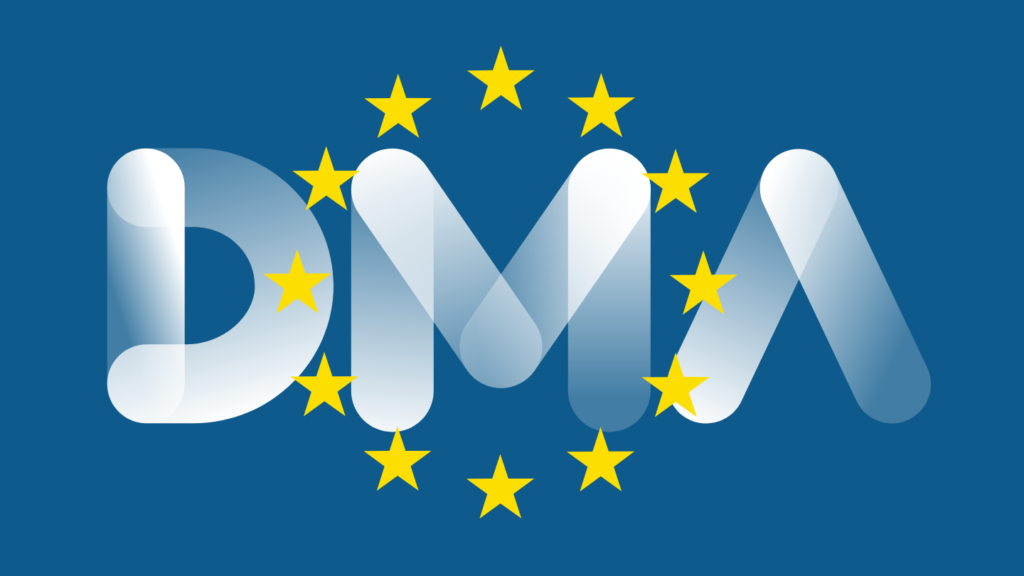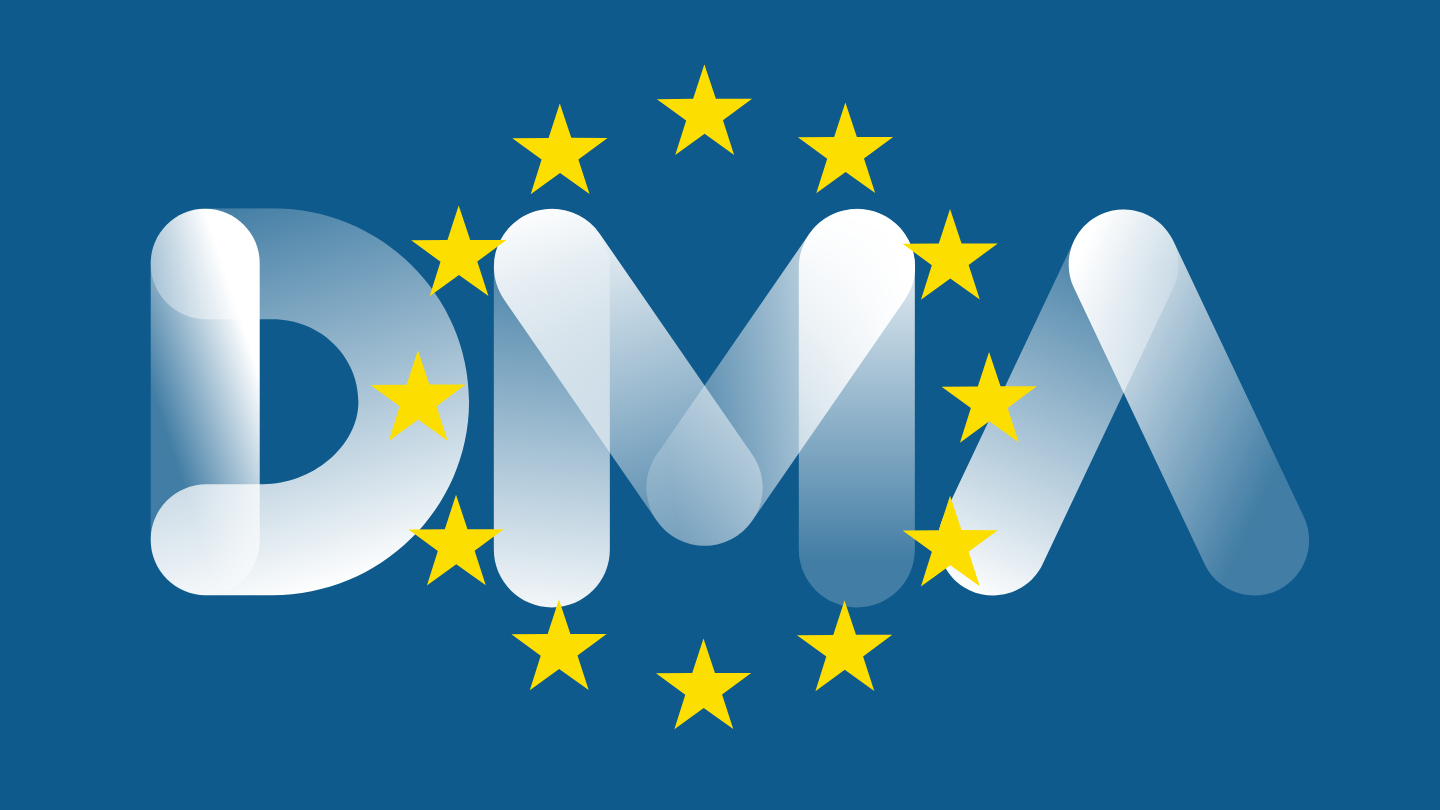As the clock is ticking in Europe for tech’s biggest players to loosen their grip on the industry, AVOW CEO Robert Wildner reflects on the historical precedents of monopolies that have led to the European Union’s enactment of the landmark Digital Markets Act (DMA).

“Are you getting it yet?” Steve Jobs’s words at the iPhone’s 2007 unveiling have gone down in history, but their real significance is still overlooked. When smartphones arrived in the late-2000s, they were intended to liberate consumers, combining cell phones with the power of PCs. Two decades later, they’ve transformed society, yet their potential has been stymied. The culprits here are, ironically, the companies that sparked this revolution. Between them, Apple and Google’s app stores have dominated the market, charging developers high fees, preventing the availability of alternative app stores, and reducing consumer choice. Are you getting it yet?
The European Union (EU) has. In September 2023, its landmark Digital Markets Act (DMA) called time on this situation. Attempting to break up tech’s big players’ monopoly, it said that by March 2024, Apple and Google will be obligated to allow users to download alternative app stores on iOS and Android. What’s more, they’ll also have to allow consumers to choose the default apps on new smartphones. At last, people might start to get it.
When we founded AVOW in 2018—a company dedicated to supporting mobile brands outside the mainstream with smart, sophisticated marketing—we did so because of our belief that mobile OEMs and alternative app stores are the future as they offer people choice. And as a result of the EU’s decision, that future now looks brighter than ever. But how did we get here? As a new era in smartphones and apps begins, let’s examine the history.
Monopolies: Bringing It All Back Home, Again
Monopolies are nothing new. As modern commerce began to expand in the 18th century, people such as the English economist Adam Smith were already railing against them. “The freer and more general the competition” of commercial entities, Smith inveighed in The Wealth of Nations (1786), the more societies are able to avail themselves of the “advantageous” perks of competitive trade.
In the 19th century, governments began clamping down. In the UK, the 1846 Corn Laws tackled agricultural monopolies, while the US’s 1890 Sherman Antitrust Act had a much broader remit. Since it was passed, it has been used to challenge illiberal commercial practices by, among others, Standard Oil, American Tobacco, and, as recently as 1982, the American Telephone & Telegraph Company (now the AT&T Corporation). That year, the legislation was also used against IBM by the Department of Justice. Although the case was dropped, the scrutiny of this 13-year investigation had a lasting effect on its business.
Prior to the DMA, the situation in the tech world resembled the one Smith decried. Since the first smartphones and app stores flooded the market after 2008, a small number of companies have assumed control of the business. In the US, Apple commands 61% of the smartphone market, while globally, Android accounts for 72% of all operating systems (and the rest are nearly all iOS). Simply put, that’s a lot of people that can’t easily access a plethora of useful and fun apps available on the burgeoning alternative app store ecosystem—until now.
Europe Strikes Back (And So Does Business)
Prior to the EU’s landmark legislation, challenges to these unfair commercial advantages were already afoot. In July 2018 and March 2019, the EU Commission (EC) fined Google €4.34 billion and €1.49 billion respectively for breaching anti-monopoly rules. Subsequently in July 2020, the EC ordered a public consultation on what would become the DMA, examining “issues that may require intervention at the EU level.” By Christmas, it was part of EU digital strategy.
At the same time, rumblings across the pond were laying bare the extent of dissatisfaction in tech itself over this status quo. In August 2020, the video game studio Epic sued Apple and Google using Sherman antitrust legislation. Earlier that month, the mobile giants pulled Epic’s hugely popular Fortnite title from their app stores after the developer updated it with a direct payment option—another element these two trillion dollar companies tightly control. Last December, Epic won its case against Google, and although it lost its suit with Apple, the court ruled that Epic is allowed to promote its own payment options.
Whether directly or indirectly related, all of this is part of the DMA’s background. After being adopted as an EU strategy, the legislation was officially proposed by the EC in July 2021, and became law on November 1st, 2022. Last September, the EU subsequently placed Alphabet (aka Google), Amazon, Apple, ByteDance, Meta, and Microsoft under special scrutiny to enable users the freedom to choose what services and software they wish to use. If by this March these companies haven’t met the expectations of the DMA, they could face proceedings.
“More choice for consumers, fewer obstacles for smaller competitors: the DMA will open the gates to the Internet,” announced EU commissioner Thierry Breton. “It was high time that Europe set the rules of the game upfront to ensure digital markets are fair and open.”
The World Won’t Wait
Unsurprisingly, other countries are following suit. In 2021, South Korea passed legislation limiting Apple and Google’s control over app-store payments, and the following year, India’s Parliamentary Standing Committee on Commerce proposed DMA-style regulations. Elsewhere, the UK government has tabled a “pro-competition” Digital Markets Bill, and in the United States, the US Senate is set to consider the American Innovation and Choice Online Act, both of which are comparable to the DMA. At the same, the iPhone manufacturer’s troubles continue to mount.
Following an investigation into its app store practices by the EC that began in 2021, Apple conceded this January to give its rivals in Europe access to its contactless payment system. Moreover, at the same time as Apple announced that it would divide its app store in two in order to conform with the Digital Markets Act, the US Justice Department recently announced that it was in the final stages of another investigation against the company that could lead to an antitrust case.
The takeaway from this, however, isn’t that successful companies are bad. On the contrary, as Thierry Breton highlighted, it’s about consumer choice and allowing competition so that there can be more successful companies—not fewer. The world needs big brands. But it also needs smaller companies to achieve scale so that industry and technology can progress. Previously, this just wasn’t possible. But with the DMA’s support, hopefully this will now be the direction of travel elsewhere too. After all, if the EU can get it, why not the world?
AVOW: Leading the Charge in Mobile OEM Advertising in the DMA Era
As we embrace the transformative journey spurred by the Digital Markets Act, AVOW stands at the forefront, ready to navigate you through the evolving digital marketplace through mobile OEM advertising. Partner with AVOW to unleash the full potential of your mobile brand in this new era of openness and opportunity.
About the Author






